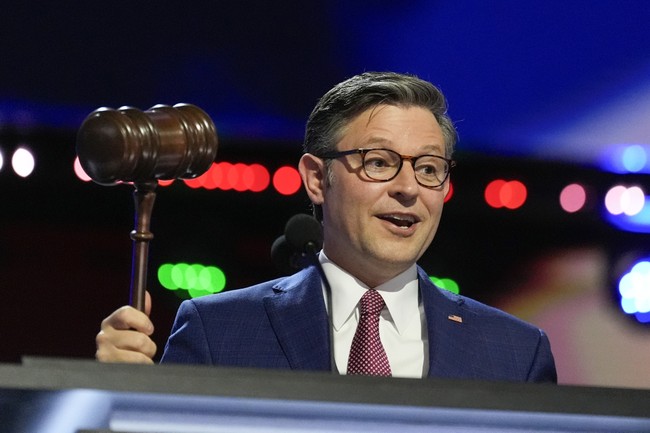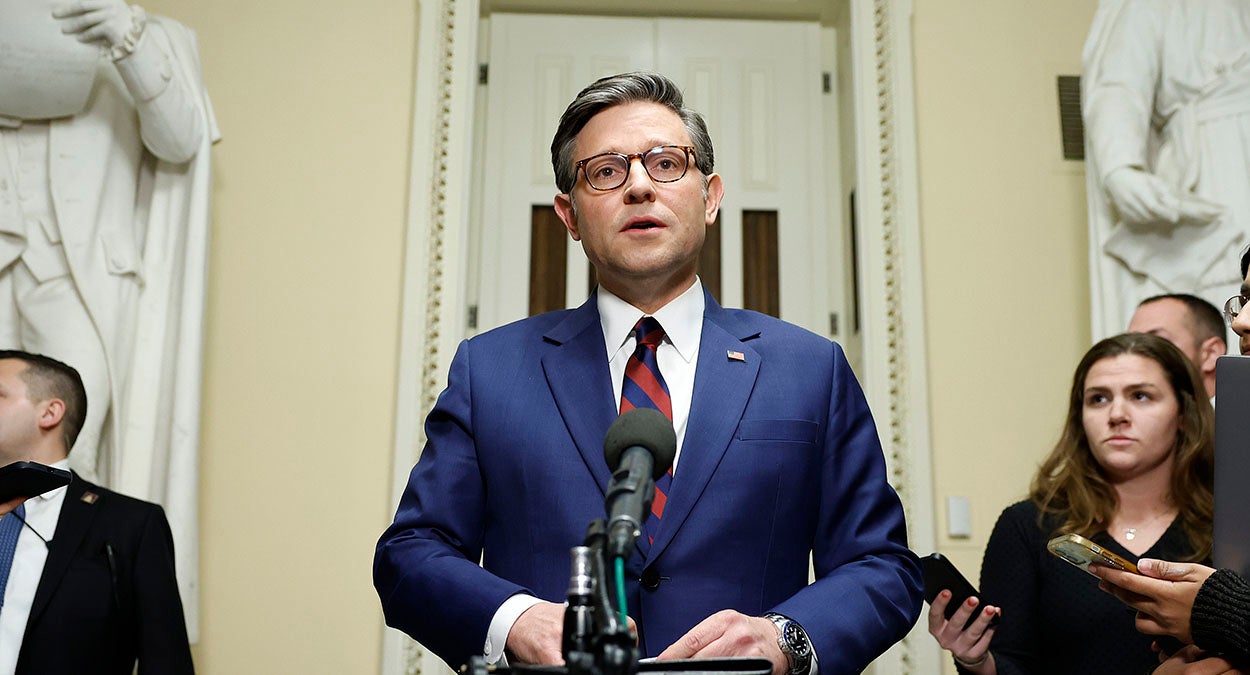The Merriam-Webster Dictionary defines “criminal” as “one who has committed a crime.” The people sworn to represent you and your interests, on the other hand, want to use the newly introduced House omnibus bill to define juveniles or adults charged, convicted, incarcerated, or even sentenced to ankle bracelet monitoring for crimes as a “justice-involved individual.”
The 1,547-page legislation representatives led by GOP Speaker Mike Johnson hope to pass to fund the federal government through March 2025 is packed with oodles of pork that guarantees the survival of many of federal bureaucrats’ favorite pet projects. In addition to throwing taxpayer dollars at the state department program known for demanding the censorship of free speech champions like The Federalist, the lengthy legislation aims to revise widely accepted terms in favor of ones often championed by Democrat revisionists.
For years, federal laws have accurately branded people who break the law as “criminal offenders.” The passage of the newly introduced House omnibus would change that by marketing the outlaws — specifically those in the Workforce Innovation and Opportunity Act — with vocabulary that seeks to not only downplay their criminal reputations, but words that could easily be mistaken as descriptors for superheroes.
It’s only on page 1400 of the omnibus that the euphemistic term “justice-involved individual” is formally defined as someone “who has been adjudicated delinquent or convicted of a crime and imprisoned under Federal or State law.”
More

 thefederalist.com
thefederalist.com
The 1,547-page legislation representatives led by GOP Speaker Mike Johnson hope to pass to fund the federal government through March 2025 is packed with oodles of pork that guarantees the survival of many of federal bureaucrats’ favorite pet projects. In addition to throwing taxpayer dollars at the state department program known for demanding the censorship of free speech champions like The Federalist, the lengthy legislation aims to revise widely accepted terms in favor of ones often championed by Democrat revisionists.
For years, federal laws have accurately branded people who break the law as “criminal offenders.” The passage of the newly introduced House omnibus would change that by marketing the outlaws — specifically those in the Workforce Innovation and Opportunity Act — with vocabulary that seeks to not only downplay their criminal reputations, but words that could easily be mistaken as descriptors for superheroes.
It’s only on page 1400 of the omnibus that the euphemistic term “justice-involved individual” is formally defined as someone “who has been adjudicated delinquent or convicted of a crime and imprisoned under Federal or State law.”
More

Omnibus Redefines Criminals As 'Justice-Involved Individuals'
Repackaging language is a common tool used by Democrats to disguise and advance their radical policy proposals.













